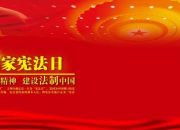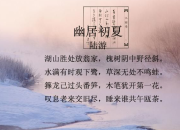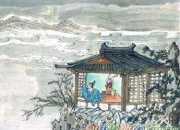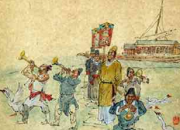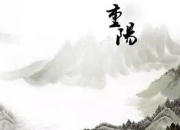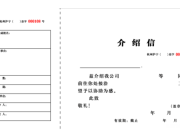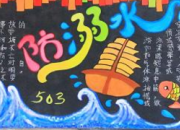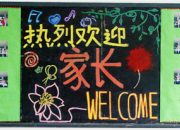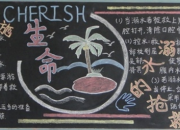高二英语课件(3)
时间:2021-08-31(Teacher plays the tape after the students’discussion.Then teacher asks students to read the text aloud and find questions in the text.Teacher gives brief explanation to them.) Step V Summary and Homework
T:Now let’s think about a question:What can we learn from the text?(Write it
on the blackboard.) Discuss it with your partner.(After a while.)Who can tell us what
you think?
S1:We should observe everything carefully and think deeply,then we can draw fl good conclusion.
T:Very good.Now let’S see how the scientists observe and think.
(Teacher writes Observation,Thinking.Conclusionon the Bb.)
T:So much for the text.Now today’s homework:
1.Make sentences with the words and phrases:whatever:lead sb.to do sth.;nowhere,variety;in view
2.Do Writing on Page 35.
Sample writing:
Dandelions
In nature,there are varieties of environmental conditions for the plants to grow in.Some places are hot and dry and there is little rain while in other places it is cool and wet. So the same plants that in different places are quite different.
Let s take oanaeuons as an example. They are widespread and can be found almost everywhere.Their yellow flowers are beautiful and their leaves look like the teeth on a saw.The wind spread their flowers and seeds everywhere,so when they grow in hot and dry places,they are low and thin.Their flowers and leaves are short and light in colour.5—10 centimetres long.They grow close to the ground and their roots are deep in it.Their hearts are a little sunken into the earth,so that the rain water can flow from the leaves to the heart where the roots are.
But in places it is cool and wet,things fire different.They become higher and stronger and can grow as long as 15-20 centimetres.Theirleaves are broader and their flowers are larger.The colour of the flowers and leaves becomes darker green.If some weeds are taken here,there will be many of them a few weeks later.
A great Swedish scientist Cote Turesson said that differences between plants of one species occured as a result of the environmental conditions in their habitat.From dandelions we can see this clearly.
Step Ⅵ The Design of the Writing on the Blackboard
StepⅦ Record after Teaching
语言点讲解
procedure n.
1. 程序;手续;步骤,工序;[U][C]
The chairman was quite familiar with the procedure for conducting a meeting. 主席对开会的程序很熟悉。
The new work procedure is a great improvement on / over the old one.
新工序比起老工序来是一个巨大的改善。
The next procedure is as follows.
He complained to the manager, and by this procedure got the money back. 他向经理投诉,通过这种程序拿回钱
下一个步骤如下。
2. 常规;传统的做法[C][U]
The first step in the procedure for making a kite is to build the frame.
制作风筝的第一步是做骨架
bunch n.[C]
1. 串,束[(+of)]
Miss White received a bunch of flowers from her admirer.
怀特小姐收到爱慕者所送的一束花。
a bunch of grapes; 一串葡萄
2. 【口】群,伙,帮[G]
A bunch of children were at play.
一群孩子在玩。
merely adv.仅仅;只不过
I merely looked at the chocolate; I did not eat it.
我只不过看了看巧克力,我没有吃。
They are not merely content to fill the stomach.
他们不仅仅满足于填饱肚子。
You don't have to be angry. He merely wanted to know the truth.
"你不必太生气了,他只不过是想知道点事实真相。"
That was merely a guess of mine.
那只是我的一种猜测。
classifyvt.
1. 将...分类;将...分等级
People who work in libraries spend a lot of time classifying books.
在图书馆工作的人花大量的时间为书籍分类。
Eggs are classified according to size.
鸡蛋按大小分等级。
identification n.
1. 认出;识别;鉴定;确认[U]
the identification of criminals by their fingerprints
凭指纹确认罪犯
2. 身份证明;身份证[U][C]
I used my driver's license as identification.
我用驾驶执照作为身份证明。
Have you any identification?
你有身份证明吗?
His only means of identification was his passport.
他唯一证明身份的证件就是他的护照。
vt. identify vt.
1. 确认;识别;鉴定,验明[(+as)]
She identified him as her attacker.
她认出他就是袭击她的人。
I cannot identify this signature.
我识别不出这是谁的签字。
promote vt. n. promotion
1. 晋升(常与to连用)
He certainly ought to be promoted.
他应该要提升。
Our teacher has been promoted to headmaster.
我们的老师已被提升为校长了。
The young army officer was promoted (to the rank of) captain.
那个年轻的陆军军官已被提升为上尉。
2. 使(学生)升级 (+to)
Pupils who pass the test will be promoted to the next higher grade.
通过考试的学生将升到高一个年级去。
3. 促进;发扬;引起
The Prime Minister's visit will promote the cooperation between the two countries.
首相的访问将促进两国间的合作。
privilege n.
1. 特权;优特[C][U]
He enjoys diplomatic privileges.
他享有外交特权。
I had the privilege of meeting the queen.
我有会见王后的特权。
Education should not be considered to be a privilege in a modern society. "在一个现代社会中,受教育不应该被看成是一种特权。"
2. (个人的)恩典,殊荣[S]
It is a great privilege to know you.
认识你真是莫大的荣幸。
appetite n. [U][C] 1. 食欲,胃口[(+for)]
Exercise gave her a good appetite. 运动使她胃口大增。 to lose one's appetite 食欲不振
2. 欲望;爱好[(+for)]
At the moment she had no appetite for gossip. 此时此刻她无心闲聊。 an appetite for learning. 学习的强烈愿望 wealth n.
1.The father passed on the family's wealth to his son. 这位父亲把大笔家产传给儿子。 2.(与of连用)大量,许多


